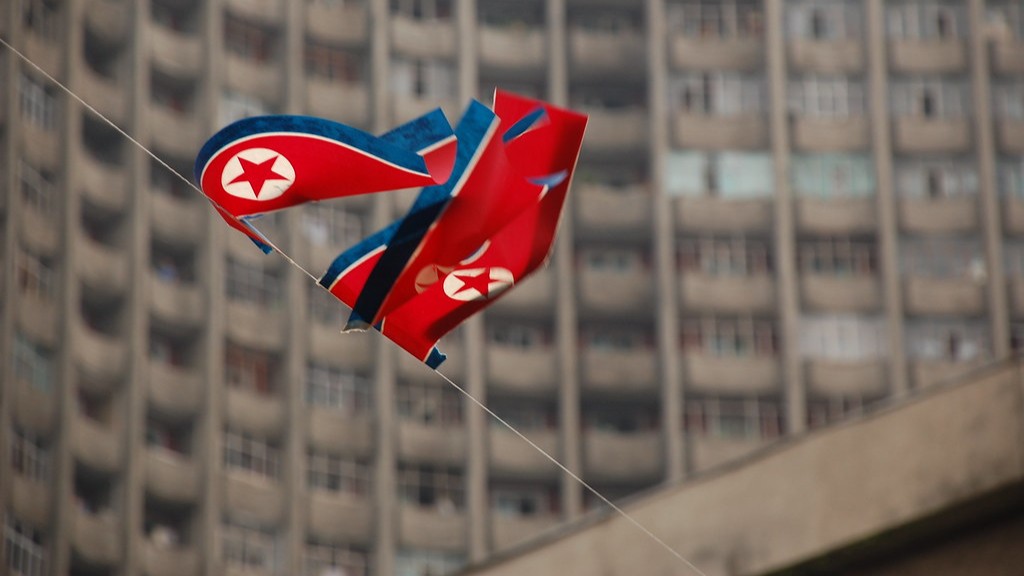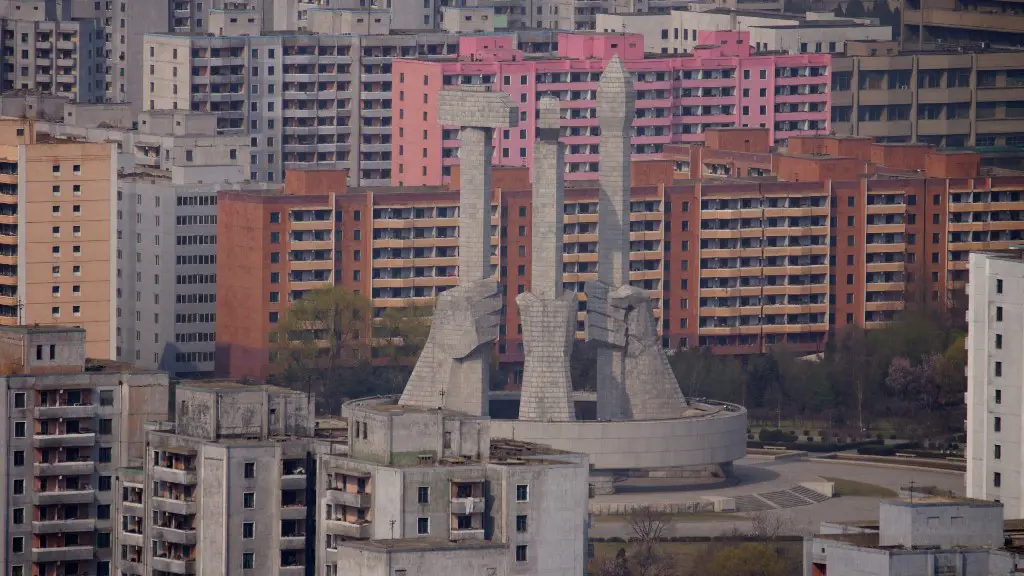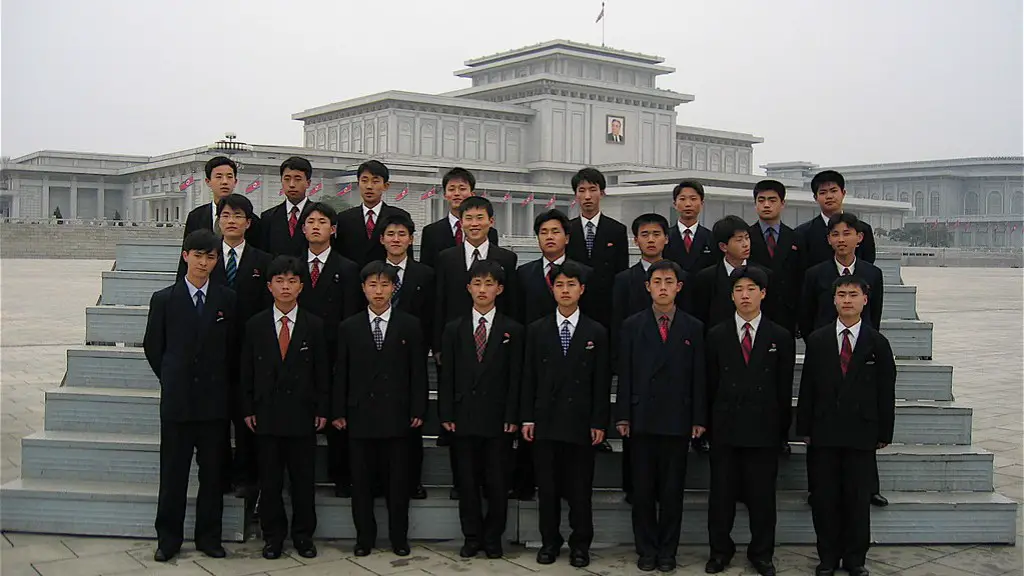Preparing to Leave North Korea
Leaving North Korea is a challenging and dangerous endeavor. For anyone considering that path, the first step should be to prepare for the physical and emotional journey ahead. Physical preparation involves gathering resources, such as food and money, to sustain the individual during their escape. It also includes protecting oneself from any threat of injury, such as that posed by the North Korean regime. Emotional preparation is also necessary. Those considering the journey should carefully consider if the risky nature of the trip is worth the potential outcome.
To leave North Korea, individuals should first familiarize themselves with the geography and landscape. Such knowledge can help them identify strategic points of entry and exit as well as trusted people and smuggling routes out of the country. In addition, individuals should consider the possibility of bribery and how buying or selling favors can help them pass through certain checkpoints.
Resources and financial assistance from different organizations and networks can also be requested from outside of North Korea. Funding from foreign non-governmental organisations or from the international community can help in the planning, execution and completion of any escape from North Korea. Additionally, fundraising campaigns to raise money for refugees who have escaped the country are a great way to provide assistance.
Finding trustworthy individuals and organizations to help is difficult, but these can be invaluable during the escape process. Smugglers and human traffickers often operate in North Korea. However, relying on these sources carries with it a significant risk of being abused or exploited. There are also international organizations and networks that are willing to help those trying to leave North Korea, but their help may come with certain restrictions or conditions.
Those planning their escape should also consider the need for a safehouse. This can be a place where they can take refuge while they plan their next steps. It should be a place where they feel safe and secure until such time as they are confident enough to venture further. Safe houses are an important element of the escape process, and special care should be taken to ensure its safety.
The journey out of North Korea requires considerable physical and emotional preparation. Before attempting such a feat, individuals should carefully consider the risks involved. They should also familiarize themselves with the geography and landscape of the country, and seek out resources and assistance from trusted organisations. Lining up safehouses can also help in the process, as these places provide a necessary refuge until such time as the individual feels prepared to proceed.
Crossing the border out of North Korea is a risky endeavor, and if successful it can be life-changing. To carry out such a feat, individuals must be aware of the dangers and obstacles they will face, including physical barriers and human traffickers. As such, proper planning and caution must be taken.
In order to successfully breach the North Korean border, individuals must be aware of their surroundings and the potential danger posed by the armed guards. This can include anything from the location of mines and traps to the posture of the border guards and the viability of bribery. Careful consideration should also be given to the layout and pathways of the various routes leading out of North Korea.
Smugglers and human traffickers offer a range of services for those attempting to cross the border out of North Korea. However, as with any form of service, caution should be taken when engaging such resources. Those hoping to use the services of smugglers and traffickers must investigate their backgrounds to assess the risks associated with their services.
The addition of technology has made it easier to cross the border out of North Korea. Many smugglers now rely on satellite technology, GPS transmitters and other devices to pass information and instructions back and forth. This technology can provide vital information on safe crossing points, as well as provide directions on the safest means of transport.
Fleeing North Korea is an extremely dangerous and challenging endeavor, and crossing the border should not be taken lightly. Those hoping to leave North Korea must recognize the dangers present and prepare accordingly. This includes gaining knowledge of the geography and potential routes of escape, seeking assistance from trusted organisations and investigating the background of any smugglers or human traffickers they may engage.
Finding Refuge in a Host Country
Fleeing North Korea can lead to freedom and an improved living situation, however, once arriving in a foreign country, refugees must find ways to start anew. This process can be daunting, as it can involve overcoming language barriers and cultural differences. To overcome these challenges, individuals should seek assistance from organisations or communities that can help them settle in.
Individuals hoping to find refuge in another country must first find legal, financial and social protection so that their rights and security can be guaranteed. In order to obtain these protections, individuals should seek assistance from existing refugee-friendly organisations or agencies who can inform them of the applicable laws and procedures. Additionally, individuals should ensure that they apply for residence permits in order to remain in their host country and receive access to social welfare services.
Finding employment can also be a challenge, as job opportunities are often limited among refugees. Organisations and networks can help in this regard, by providing language or technical training as well as job placements. In addition, refugees should familiarise themselves with their host country’s cultural norms and job market, as doing so can help them adjust and better integrate into the new environment.
Finding accommodation is another major concern among refugees. Governments usually provide temporary housing, such as refugee camps, in order to assist those arriving in the country. However, with limited resources and space, these offers can be insufficient. Private sponsorships, on the other hand, are more reliable and can provide a more permanent home. Organisations and communities can also help in this regard, as they can assist refugees in finding affordable accommodation and provide guidance on building a new life in the host country.
Finding refuge in a foreign country presents numerous challenges, and those who have managed to escape North Korea must be prepared to overcome them. Seeking assistance from refugee-friendly organisations, networks and private sponsors can ease the transition and help individuals better integrate into their new environment. Additionally, refugees should familiarize themselves with their host country’s cultural norms and job market, as doing so can help them adjust and better integrate into the new environment.
Adjusting to New Life in a Host Country
After the process of starting over has been completed, those who have fled from North Korea must find a way to adjust to their new lives in a foreign country. This process can be difficult and often gradual, but there are resources available to help ease the transition.
Counselling services are important for those making the transition, as they can help individuals work through their emotions and adjust to the changes they are experiencing. Additionally, counselling can help with the transition by providing guidance on how to deal with the new environment, as well as information related to job searches, housing and other pertinent topics.
It is also important for refugees to foster connections and build relationships in their new environment. Making friends with people from the host country can help bridge cultural differences and provide individuals with crucial support networks. Additionally, refugees should find ways to stay connected to their home country and culture, so as to help them retain their identity and make the transition easier.
Self-empowerment is another key factor in the adjustment process. Refugees should find ways to make their lives more meaningful in their new environment. This can involve learning a new language, taking up a new hobby or volunteering in the community. Doing so can provide refugees with a sense of purpose and help them build a new life.
The process of adjusting to a new life in a foreign country is never an easy one. Those who have fled North Korea must be prepared to face a range of new challenges. To help in this process, refugees should seek out relevant resources, foster connections and build relationships, and practice self-empowerment.
Continuing to Help Others in Need
For those who have successfully fled North Korea, helping those still in need can be a crucial part of their new lives. Such efforts can range from raising funds for those still in North Korea to advocating for increased political and social attention to the issue.
Fundraising campaigns are a great way to provide much-needed assistance to those still in North Korea. Refugees can lead their own campaigns, or join existing ones, in order to raise funds and awareness. These funds can be used to provide resources such as food, clothing, medical supplies and other services.
Victims of human trafficking are particularly vulnerable, and so special attention should be paid to helping them. Refugees should consider forming or joining organisations dedicated to eradicating human trafficking, as doing so can help protect those fleeing North Korea, as well as those still in the country.
Advocating for political and social change can also be valuable in helping those still in North Korea. This can include anything from writing to politicians or public advocates to raising awareness on social media. A unified effort, driven by the voices of former refugees, can draw increased attention to the issue and pressure governments to take action.
Helping those still in need is a fundamental aspect of the refugee experience. Refugees must do their part to raise funds, join organisations dedicated to helping victims of human trafficking and advocate for political and social change. Such efforts can make meaningful contributions in helping those still in need.
Reducing the Risks of Return
Returning to North Korea is a risky venture, and those who have already managed to escape must find ways to reduce and manage the associated risks. Single journeys should be avoided, as they can dramatically increase the potential risks. Instead, individuals should attempt to devise multi-journey plans that can help mitigate any potential problems.
In addition, individuals should familiarise themselves with the geography and landscape of their planned route. Such knowledge can indicate strategic crossing points, trusted people and smuggling routes. In order to ensure that these routes remain safe, individuals should consult with those familiar with the terrain, such as locals or smugglers.
Technology can provide additional assistance in mitigating the risks of a return. Devices such as satellite phones, GPS and other communications devices can provide vital information on potential dangers and safe crossing points. Knowing the location of armed guards, military posts and other risky areas is essential when planning a stealthy return.
Returning to North Korea is a risky endeavor, and individuals should take every precaution to reduce their chances of discovery, capture and interrogation. Familiarisation with the geography and landscape of the planned route, as well as the use of technology, can help streamline the process and increase the chances of a safe return.
Reducing the risks of return requires considerable preparation and planning. Those hoping to return must take into account the various risks presented and devise multi-journey plans accordingly. They should also familiarise themselves with the geography and landscape of the planned route, seek advice from reliable sources and use the latest technologies for additional assistance.




